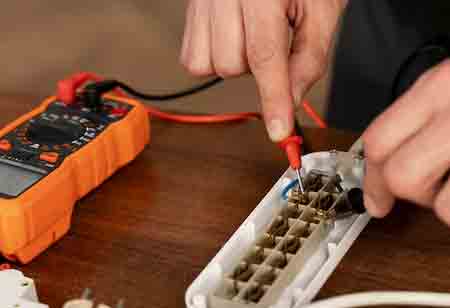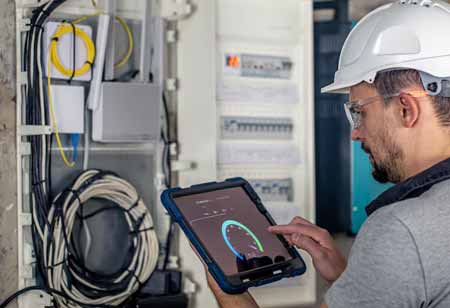Thank you for Subscribing to Electrical Business Review Weekly Brief
I agree We use cookies on this website to enhance your user experience. By clicking any link on this page you are giving your consent for us to set cookies. More info
Electrical Equipment Testing: Safeguarding Against Risks and Failures
Regular testing of electrical equipment ensures the detection of possible hazards, compliance with all safety regulations and standards, and the prevention of equipment failure.

By
Electrical Business Review | Friday, February 28, 2025
Stay ahead of the industry with exclusive feature stories on the top companies, expert insights and the latest news delivered straight to your inbox. Subscribe today.
Regular testing of electrical equipment ensures the detection of possible hazards, compliance with all safety regulations and standards, and the prevention of equipment failure.
FREMONT, CA: Electrical equipment must be tested to guarantee its functioning, safety, and adherence to industry standards. Electrical engineers, technicians, and other specialists engaged in electrical maintenance must understand the many testing techniques and equipment available. This extensive book will cover the many kinds of electrical testing, the necessary tools, safe procedures, common problems, and troubleshooting techniques.
Electrical equipment must be properly tested for various reasons. It aids in detecting possible flaws before they become serious issues, promotes user safety, and keeps electrical systems efficient and reliable. Professionals may perform these activities effectively and securely if they adhere to the standards and use the appropriate test equipment. Regular testing of electrical equipment is essential for ensuring its safety and functionality. It is necessary to ensure that all components function properly to avoid major accidents, equipment breakdowns, and costly downtime. Understanding the necessity of testing can significantly affect the work environment and the longevity of electrical instruments.
Significant advantages of testing electrical equipment
Safety benefits: One of the most important reasons for testing electrical equipment is to improve safety. Faulty electrical systems can cause serious problems, such as electrical shocks, fires, and explosions. Regular testing helps uncover possible risks before they cause accidents, protecting both users and equipment. Ensuring all electrical components fulfill safety requirements lowers the risk of injury and death.
Financial consequences: Regular testing requires time and resources, but it can result in significant long-term financial benefits. Preventing equipment failures minimizes the need for costly repairs or replacements. Furthermore, maintaining efficient and safe operations helps reduce insurance premiums and prevent the financial penalties associated with noncompliance with safety standards.
Regular testing guarantees that electrical experts maintain safe, efficient, and compliant equipment, thereby protecting their investments and contributing to a safer working environment.
Avoiding equipment failure: Testing can help to avoid unexpected equipment breakdowns by identifying problems early. Electrical equipment exposed to regular testing is less likely to fail, resulting in more consistent performance. This proactive approach aids in sustaining continuous operation while minimizing the costly effects of unexpected equipment errors.
Regulatory and compliance requirements: Compliance with regulatory standards is an important part of electrical testing. Several industrial laws require regular testing to assure safety and functionality. Following these standards not only avoids legal consequences but also indicates a dedication to upholding high safety and operating standards.








